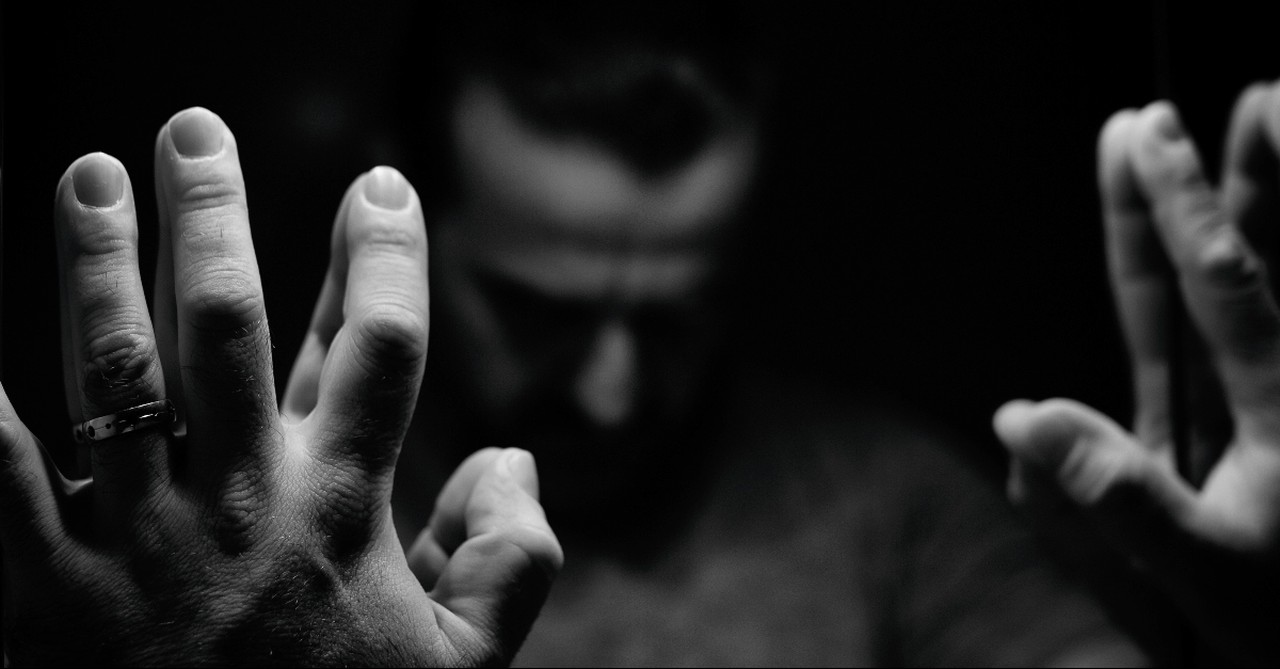5 Types of Wildernesses We May Go Through in Our Christian Lives

A wilderness is an uninhabited and inhospitable region. There are many types of wilderness on the earth, but hardly any of them are places we would choose to live for extended periods of time.
My husband and I lived out west in Wyoming and Utah for a few years. This Arkansas girl had a hard time adjusting to the weather at 8,000 feet above sea level. Winter blahs plagued me as mounds of snow surrounded our house. Travel required chained tires and careful driving.
The space between cities was a vast wasteland to me. In winter, the snow-covered ground spread for miles against the horizon with nothing in sight but the glistening of barren whiteness. In the summer, the same areas were blanketed with dust and produced nothing but scrubby grass. The sight of city lights after driving through isolated, inhospitable, and desolate areas was always a welcome relief.
There are instances when our spiritual condition can mimic a wilderness season. We can feel dry, frozen, immovable, and hopeless. Many of our biblical counterparts lived through circumstances that reflected a desert experience. I’m sure they didn’t enjoy the events at the time, but they left a legacy to show us how they persevered, and these incidents strengthened them.
As fellow human beings, we are not immune to encountering the same soulish attacks. Here are five types of wilderness experiences we may go through as Christians.
Photo Credit: ©Getty Images/Smileus
1. Wilderness of Temptation

1. Wilderness of Temptation
SLIDE 1 OF 6
The Spirit of God led Jesus into the Judean desert to be tempted by the devil. Christ endured this struggle to identify with us and our emotional battles. Even though He was and is God, He overcame these temptations as the Son of Man instead of using a miraculous method as the Son of God. He relied on Scripture. This shows us we can overcome the devil’s lure toward us in the same way.
The Spirit doesn’t lead us into temptation but guides us out of this trap (James 1:13). When we are in the desolation of temptation and are gripped with fear and hopelessness, we need to remember how our Savior defeated the devil. We find Scripture to stand on to keep us strong and nullify Satan’s lies. The wilderness of temptation can help grow spiritual muscles, but only if we overcome it, not simply because we go through this.
No temptation has overtaken you except what is common to mankind. And God is faithful; he will not let you be tempted beyond what you can bear. But when you are tempted, he will also provide a way out so that you can endure it. (1 Corinthians 10:13 NIV)
Photo Credit: ©iStock/Getty Images Plus/CasPhotography
2. Wilderness of Hardship

2. Wilderness of Hardship
SLIDE 2 OF 6
Life happens. Financial failures, sickness, broken relationships, and other tragedies can all leave us feeling out of control. Circumstances can hit us between the eyes in unexpected ways through no fault of our own. In some cases, our behavior may cause these hardships, but we should know that our Lord doesn’t leave us there. He loves us and wants to help us return to fruitful living.
Joseph lived through years of difficulties due to his brother’s jealousy. He never blamed the Lord, and he did extend forgiveness to his siblings. Joseph’s example shows us how our heavenly Father will bring us to a victorious end if we remain strong through trying conditions.
Joseph’s situation surely caused anxiety and discouragement, but he still relied on God. He remembered the dreams the Lord had given him, and he knew Jehovah was faithful.
You intended to harm me, but God intended it for good to accomplish what is being done, the saving of many lives. (Genesis 50:20)
Photo Credit: ©Unsplash/Jeremy Perkins
3. Wilderness of Persecution

3. Wilderness of Persecution
SLIDE 3 OF 6
Christians all over the world suffer martyrdom, imprisonment, and rejection due to their faith in the Savior. We may not be exposed to as much violence as some do but rejection of any kind is not enjoyable.
Standing strong in the face of this persecution requires us to have a deep relationship with God. The account of Daniel and his three friends in Babylon reveals to us how they retained their Hebrew heritage and remained rooted in their beliefs even when threatened with death. God stood supreme in their lives.
Shadrach, Meshack, and Abednego replied to him, “King Nebuchadnezzar, we do not need to defend ourselves before you in this matter. If we are thrown into the blazing furnace, the God we serve is able to deliver us from it, and he will deliver us from Your Majesty’s hand. But even if he does not, we want you to know, Your Majesty, that we will not serve your gods or worship the image of gold you have set up. (Daniel 3:16-18)
John the Baptist spent his life in the wild. He preached repentance and pointed people to Jesus. John’s life was not one of comfort. Herod imprisoned and beheaded John because the prophet spoke the truth of God’s Word. Despite John’s questions while he was in prison, he remained a true disciple of the Lord until death. His reward in heaven is a crown of eternal life.
We don’t know what we may face in the future. The world around us grows darker and more evil all the time. But we are reassured by our Lord that if we endure to the end, we will be saved (Matthew 13-14).
Blessed is the one who perseveres under trial because, having stood the test, that person will receive the crown of life that the Lord has promised to those who love him. (James 1:12)
Photo Credit: ©Getty Images/poco_bw
4. Wilderness of Shaping

4. Wilderness of Shaping
SLIDE 4 OF 6
Moses spent 40 years in the wilderness as a shepherd while the Great I AM prepared him to lead the Hebrews out of Egypt. Then he spent another 40 years pushing dust because of the Israelites' rebellion. Paul spent several years in Arabia after his conversion. Both men were called by God for a special assignment, but neither of them, (as well as others in the Bible) were put into a place of leadership immediately. They needed periods of education and perspective to complete their assignments. God had to get Egypt out of Moses and legalism out of Paul.
But when God, who set me apart from my mother’s womb and called me by his grace, was pleased to reveal his Son in me so that I might preach him among the Gentiles, my immediate response was not to consult any human being. I did not go up to Jerusalem to see those who were apostles before I was, but I went into Arabia. Later I returned to Damascus. Then after three years, I went up to Jerusalem to get acquainted with Cephas and stayed with him fifteen days. (Galatians 1:15-17)
Learning involves preparation. We need time alone with our Creator to absorb His words and revelation. This can give us a sense of isolation as we are detached from other people and activities. We may not be physically away from others for lengthy stretches, but we may feel left out if we watch others excel in ministry or positions while we wait for the Holy Spirit to use us.
This stage of shaping is as valuable to our souls as it was to these biblical saints. Many novices in the Word have fallen due to pushing themselves into positions too soon (1 Timothy 3:6-7). Only the Lord can reveal to us when we are ready to take the first step toward our calling.
Photo Credit: ©GettyImages/KarenHBlack
5. Wilderness of Backsliding

5. Wilderness of Backsliding
SLIDE 5 OF 6
We don’t start out with plans to backslide. Some of these other wildernesses may propel us toward a downward spiral without our realization until we hit rock bottom. Bible study and prayer may fall behind and each day away from God sends us closer to another empty place where we have no nourishment. We may respond in doubt, act rebellious, or fall into other sins we never thought we would commit.
After the great victory on Mount Carmel, I doubt Elijah thought he would run from Jezebel and ask God to kill him. He fled to the desert to hide and wallowed in depression.
God grabbed Elijah’s emotions with these words. “What are you doing here, Elijah?” (1 Kings 19:13)
The Almighty pulled this prophet out of his self-pity by causing him to refocus on God’s greatness. Elijah was given other assignments and he also found his replacement, Elisha.
Peter is another example of falling away temporarily. He boldly declared that he would never turn his back on Jesus, yet when threats against the followers of the Lord frightened him he denied he even knew Jesus’ name.
This hurt Peter so badly that he wept his heart out. But Jesus didn’t abandon Peter and He doesn’t abandon us. Peter saw how much His Master forgave him and still loved him. On the banks of the Sea of Galilee, Jesus’ words healed Peter’s anguish. This disciple and the rest went on to powerfully proclaim the gospel across the known world.
When we backslide we shouldn’t continue to lash ourselves in condemnation and guilt. We can receive wisdom from these saints who have gone before us. Our Savior forgives and restores and wants to fellowship with us and lead us to live in joy not regret.
Photo Credit: ©iStock/Getty Images Plus/MarinaZg
The Wilderness Is Temporary

The Wilderness Is Temporary
SLIDE 6 OF 6
Most wilderness events don’t last forever (Psalm 30:5b), and these phases do serve a purpose.
Moses grew into a leader, Pharoah promoted Joseph to the position of Prime Minister, the Holy Spirit’s power resurrected Jesus, and the Lord appointed Paul as the leader of the New Testament churches. The disciples preached with power and performed miracles, and Elijah was taken to heaven in a whirlwind.
How we view and live through our wilderness stages will determine if we grow or if we spiritually die in a wasteland. Our believing ancestor’s response to these trials shows us how we too can overcome and bloom again.
Even if our lives are difficult until we go to be with the Lord, we know our future with Him is brighter than any light on the earth can produce.
The desert and the parched land will be glad; the wilderness will rejoice and blossom. Like the crocus, it will burst into bloom; it will rejoice greatly and shout for joy. The glory of Lebanon will be given to it, the splendor of Carmel and Sharon; they will see the glory of the Lord, the splendor of our God. (Isaiah 35:1–2)
Hardship is temporary, life with Jesus is forever.
Photo Credit: ©GettyImages/Bartek Szewczyk

Her book, Redemption, the Heartbeat of Christmas: What the Birth of Christ Means to the World, was released in October 2025. She loves coffee, a good book, and gardening, which would be more fun if not for the weeds. Barbara and her husband enjoy life with two sons, one daughter-in-love, and an energetic granddaughter who keeps these retired people on their toes.
She writes about living in our identity in Christ at https://barbaralatta.blogspot.com/. You can follow Barbara on Facebook: Barbara Latta, author; X @barbaralatta; and Instagram blatta2.
Originally published December 03, 2024.









